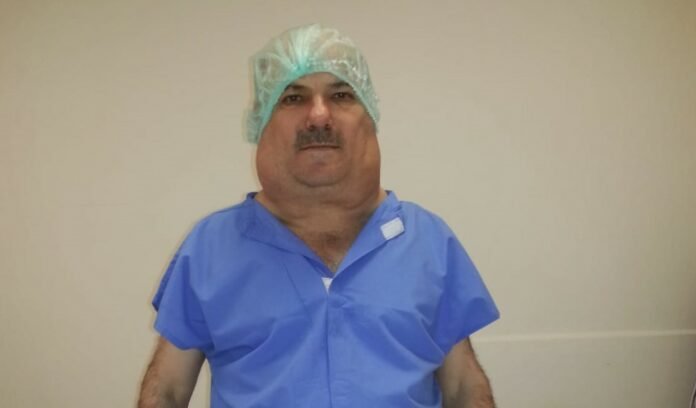Businessman Ali Kara, 64, was imprisoned in November for affiliation with the Gülen movement despite suffering from lymphoma and diabetes, Bold Medya reported.
Kara had been investigated in 2014 for working with companies that were close to the movement. He was charged with “membership in a terrorist organization” after the coup attempt on July 15, 2016 and was sentenced to six years, three months in prison. He was scheduled to go to prison on November 11 following a ruling by the Supreme Court of Appeals that upheld his sentence. Yet, in an apparent act of intimidation, the police raided his home and arrested Kara a day earlier.
Turkish President Recep Tayyip Erdoğan has been targeting followers of the Gülen movement, a faith-based group inspired by Turkish cleric Fethullah Gülen, since the corruption investigations of December 17-25, 2013, which implicated then-Prime Minister Erdoğan, his family members and his inner circle.
Dismissing the investigations as a Gülenist coup and conspiracy against his government, Erdoğan designated the movement as a terrorist organization and began to target its members. He locked up thousands including many prosecutors, judges and police officers involved in the investigation as well as journalists who reported on them.
Kara’s son, İzzet Kara, said his father’s lymph nodes were swollen despite receiving chemotherapy. “My father’s immune system is compromised, he cannot endure prison conditions where 24 people share one ward,” he said. “We do not know if he can even receive regular treatment there.”
İzzet Kara said after the Supreme Court of Appeals upheld the prison sentence his father contacted the prosecutor and said he would surrender himself. “But the police came on the morning of November 10 and arrested my father during breakfast in front of his grandchildren,” he added. “The scene scarred the children so much that every time they see a policeman, they lift their hands in surrender asking if they will also be arrested.”
Erdoğan intensified the crackdown on the movement following the coup attempt that he accused Gülen of masterminding. The crackdown also targeted political opponents of the government, Kurdish activists and human rights defenders, among others. Gülen and the movement strongly deny involvement in the abortive putsch or any terrorist activity.
The purge has resulted in a drastic increase of political prisoners in Turkish prisons, some of whom are severely ill.
Ömer Faruk Gergerlioğlu, a human rights activist and an MP from the pro-Kurdish Peoples’ Democratic Party (HDP), slammed the authorities’ refusal to release critically ill prisoners. He said critically ill political prisoners were not released from prison “until it reaches the point of no return.” He depicted the deaths of seriously ill prisoners in Turkey who are not released in time to receive proper medical treatment as acts of “murder” committed by the state.
According to the Human Rights Association (IHD), there are more than 1,605 sick prisoners in Turkish prisons, approximately 604 of whom are critically ill. Although most of the seriously ill patients have forensic and medical reports deeming them unfit to remain in prison, they are not released. Authorities refuse to release them on the grounds that they pose a potential danger to society. In the first eight months of 2020, five critically ill prisoners passed away because they were not released in time to receive proper medical treatment.
Since April four seriously ill prisoners over the age of 70 have died in penal institutions; five inmates suffering from cancer died shortly after they were released; and 16 died of chronic illnesses while imprisoned.















